How the Fraternal Order of Police Supports Law Enforcement
This article was written by Ryan Windorff, President of the Wisconsin State Lodge of the Fraternal Order of Police.
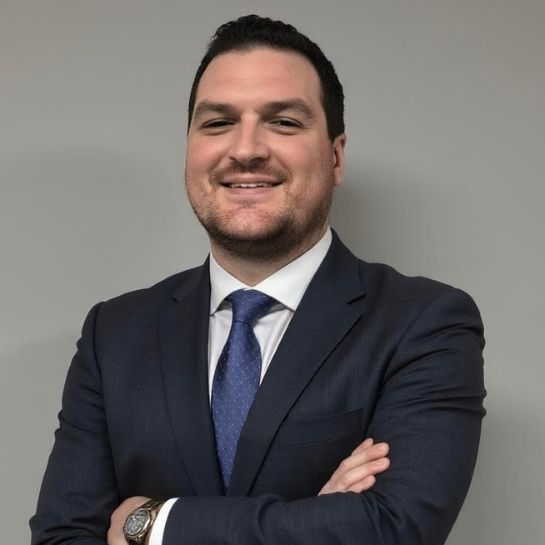
There is a national Fraternal Order of Police (FOP) lodge and various state lodges throughout the country, as well as local lodges in each state lodge. These are geographic or sometimes agency-specific and represent officers in a geographic region. My job as the state president, is to advocate for all the members in Wisconsin both on our national level and in politics in Wisconsin and Madison, and also to develop and charter new lodges throughout the state and also assist any of our members or local lodges across the state
Law enforcement associations are dedicated to representing the interests of law enforcement officers. They’re focused on providing advocacy and representation to members, ensuring that they have a voice related to their rights, working conditions, and benefits. Many organizations or associations often lobby, influencing legislation and policy decisions that impact law enforcement at the local, state, and national levels.
Championing Legal Defense for Officers in Need
Many law enforcement associations also provide legal support, which is a significant service. Anyone can turn on the news and see law enforcement officers nationwide being criminally charged with actions they took while on duty.
Certainly, there are cases where errors were made, and there are legal ramifications. Still, we’re seeing more and more prosecutorial decisions based on political pressures, political motivations, or a misunderstanding of law enforcement officers’ role in society, what they are legally able to do, and what they’re sometimes legally forced to do to protect themselves and others.
So, providing legal assistance and representation to members facing legal challenges or even disciplinary actions ensures that officers have the same legal resources across the country, no matter what situation they’re in.
We lobby to influence legislation that would be beneficial to our profession and to let our local state and federal representatives know law enforcement’s opinion. We can also influence legislation detrimental to our careers and the safety of the communities we serve. We need to have a seat at the table, and through these organizations, we do have a seat at the table and access to politicians to let them know either the negative or positive effects.
Bridging the Gap: Insurance and Benefits Beyond Retirement
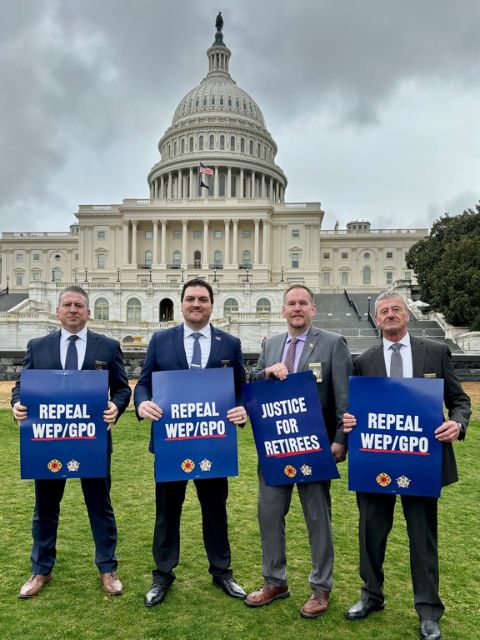
One of the things that is always a consideration for law enforcement officers when they’re looking at a potential retirement date is insurance. Medicare doesn’t kick in typically until 65. We’ve got to bridge that gap between when they retire and when they are eligible for Medicare.
Organizations and police associations such as the FOP offer pre-65 health insurance for members, which helps bridge the gap for them and their families between their early retirement age and Medicare. That is a very popular benefit for many of our members and their families.
Like any other nationwide organization, we offer various goods and services at a discount. Some of those are travel, entertainment, and retail, where the FOP has come to an agreement with companies that want to provide discounts to our members as a way of saying thank you for their service.
Social Bonds: Building Community Through Events
One of the benefits of joining the FOP, when I started my career in law enforcement, was the social gatherings and events. I worked in a jurisdiction surrounded by many other jurisdictions. with officers that I did not know.
My local FOP lodge hosted quarterly meetings, a Christmas party, a golf outing, a spring fishing tournament, a sporting clay shoot, and various events throughout the year for our members and their families to get together and get to know each other. It helps foster camaraderie and build a support network. Having a good support network of other people who understand your experiences as a law enforcement officer can benefit your career and overall wellness.
Membership Matters: Joining the Fraternal Order of Police
FOP membership is open to active and retired law enforcement officers. That includes police officers, sheriff’s deputies, correctional officers, federal law enforcement officers, and others serving within the law enforcement community. FOP also offers associate or auxiliary memberships to civilians who support law enforcement or are in a law enforcement support career. Civilian employees of police departments and family members of officers may also be eligible for associate or auxiliary membership.
Networking for Success: Opportunities for Aspiring Officers
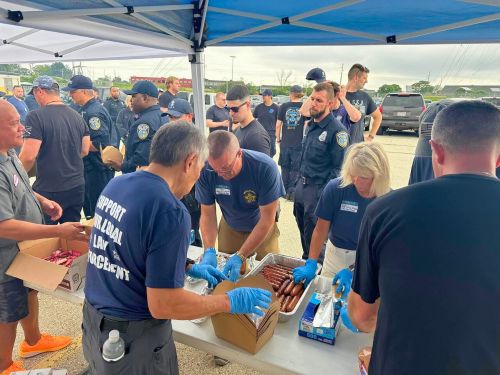
They can tell you about openings in their department. You can also arrange a ride-along with them to find out if they like their agency and what makes it better than others. You can get plugged into that law enforcement network early on. Police associations like the FOP often provide scholarships and educational grants.
Many states—not all—have associate lodges, and any state with an associate lodge or an auxiliary lodge. Auxiliary lodges are largely for family members or other civilian supporters of law enforcement, while associate lodges are generally for people who work in the law enforcement realm but aren’t sworn law enforcement officers.
A Distinction of Roles: Police Associations vs. Unions
The difference between a police union and a police association is generally around their functions and structure and the scope of their abilities. Still, there is some overlap in the roles. Police unions focus primarily on collective bargaining. They negotiate on behalf of their members for better salaries, benefits, and working conditions. They also engage in collective bargaining agreements with employers and provide representation in disputes, grievances, or sometimes disciplinary proceedings surrounding that agreement or that contract.
In most states that allow collective bargaining, unions possess the legal authority to represent their members in labor negotiations. While they also may engage in collective bargaining, their scope extends beyond that.
Most FOPs have what we call our officer distress fund, where if an officer is going through a difficult time, personally or professionally, the FOP ensures they and their families have the necessary resources.
Examples of the FOP supporting members in need
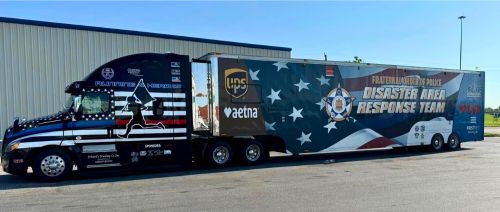
But initially, when this crash happened, we were not sure if he was going to survive. The family had several young kids, and extended family spread out throughout the United States. The FOP So the FOP had some of our members in other states where these family members lived go and notify them that this incident had occurred.
The FOP paid for plane tickets to fly their family members in, hotel rooms for them to stay here, and whatever resources they needed when they were here to be with their loved ones while they were going through this difficult time. An off-duty crash like that can happen to anybody in any career.
We’re exposed to some things that others in the general public are not. One example was a state trooper who was a member involved in an incident that caught regional, statewide, and even national attention.
Some people did not agree with the way that things were handled and the way that this trooper handled the call. They were threatening this trooper’s life and his family’s lives on social media. They figured out where he lived, and were driving by his house, videotaping it, live streaming it.
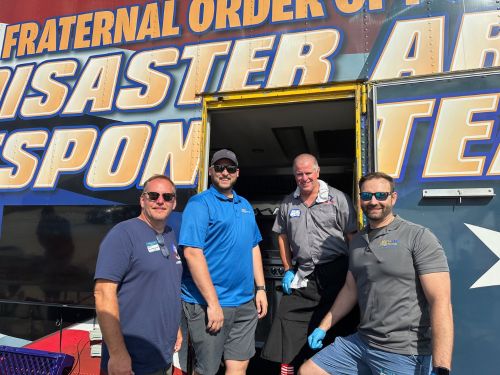
We were able to make that happen and ensure that this trooper could do his job without worrying about his family’s safety from these advocates. Then, there is one last associate or example I can provide. Again, there are hundreds of them out there. Some are just every day.
About a year and a half ago, a colleague of mine, who’s also a FOP member, was criminally charged for an incident when he had to use critical force to protect himself and his partners against a dangerous felon.
After many decades of dedicated law enforcement, this law enforcement officer was now having to defend himself in a criminal court against actions he took that followed his training and best practices. This officer spent half a million dollars to defend himself, and he was eventually acquitted. Thankfully, the truth came out, and he was found to have committed no wrongdoing, but he still had spent half a million dollars on his defense.
This trial occurred in a jurisdiction outside of where this member lived and where many of his family members were. So, the FOP was happy to sponsor hotel rooms and travel expenses so that he and his family could stay there and be with him during this trial.
We think of each other as family. If your brother, your sister, mom or dad called you and said, “Hey, this happened to me, and I need some help,” you would do anything you can. That’s no different from us. If I get a call from a law enforcement officer, whether a member or not, I treat them just like they are my family because they are my family.
Having that network across the country, I can call up FOP members from across and in any different state. I’ve called them up, having never met them before, and asked them for some help.
A Legacy of Brotherhood
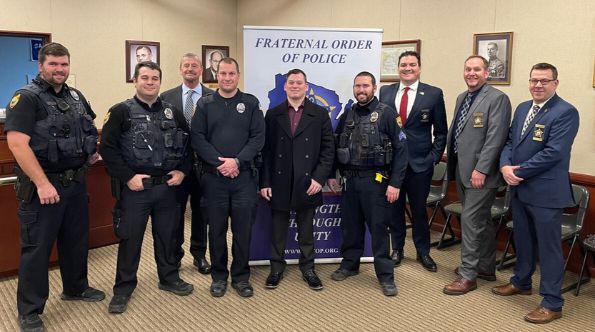
Since then, the FOP has become the country’s largest and oldest law enforcement association, with more than 377,000 members and 2,100 local lodges across the United States.
Confronting Challenges: Changing Perceptions in Law Enforcement
There been a lot of messaging out there from the media, some politicians, and some other factions of society that law enforcement officers are bad, that they’re racist, that they’re untrained, unqualified, you name it, it’s been put out there.
Anybody in law enforcement who knows law enforcement officers knows that’s not true, but that notion is still in the media. We need to stick together now more than ever, get our message across, and advocate on behalf of our profession. We’re already seeing a downturn in applicants for law enforcement jobs nationwide.
The Noble Profession: Inspiring the Next Generation of Officers
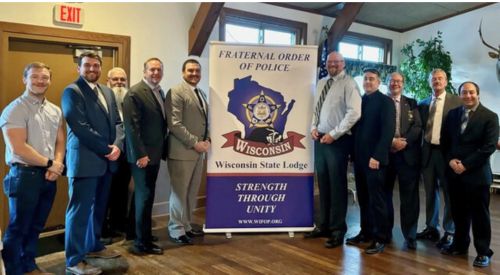
We need to spread the message and tell young people looking at a career that this profession is worth pursuing. It is extremely difficult at times, but it is also extremely rewarding. As you progress and enter this career, organizations such as the FOP will standing by your side, fighting for your rights, and ensuring that you are treated fairly and given the recognition and respect you deserve will be a calculation for success for a long career.
